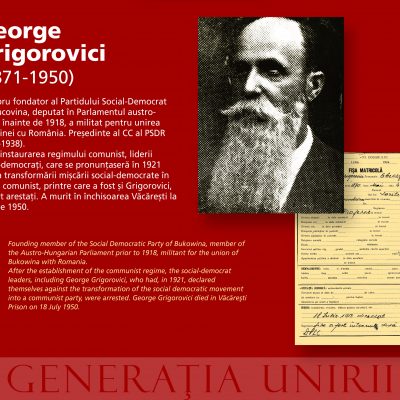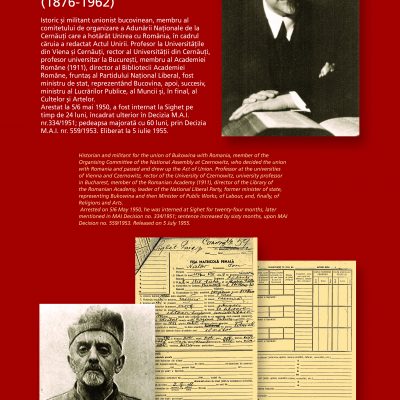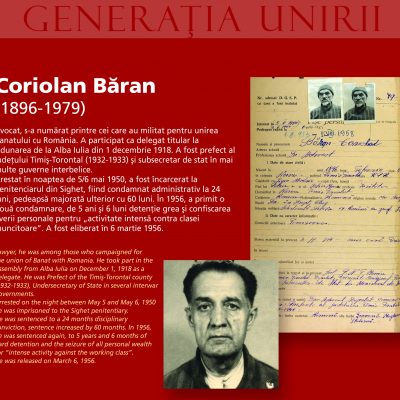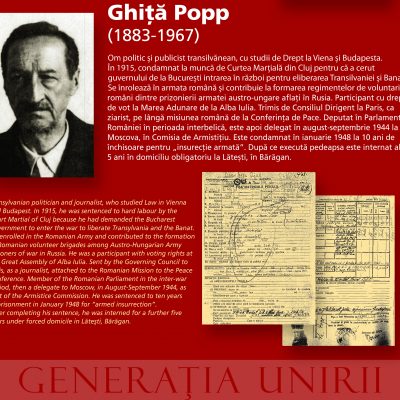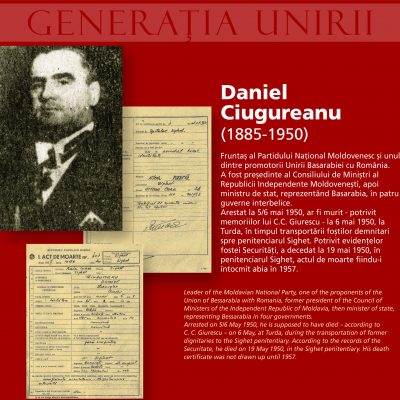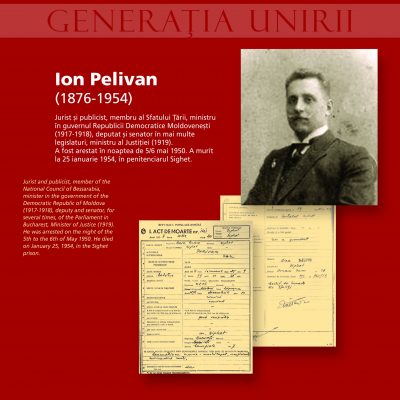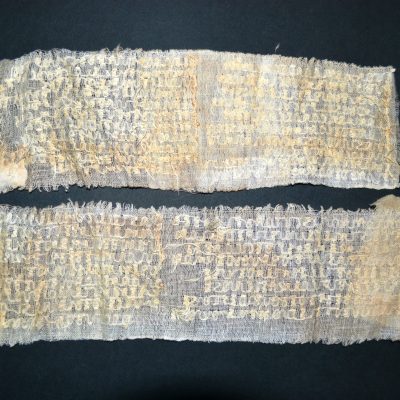This is the title of a new section of our web site, dedicated to the victims of communism. We shall be telling the story of people who suffered for the sake of their beliefs and moral integrity. The amnesia of contemporary society has condemned them to oblivion a second time, by erasing their memory and the model humanity they represented.
“Given that the victims of communism have been forgotten, contested or even slandered for so many years, we have tried to be reserved in our scientific approach and avoid any sentimental tinge. Where we found documents, we used them; where we did not, we preferred to signal the gap. Where we could count the victims, we did so; where we could not, we preferred an approximation as to the order of magnitude. However, even using the most drastic caution in order to avoid the risk of exaggeration, we are guilty before each individual oppressed in “the sea of bitterness” (to quote Eminescu) for having transformed him or her into a number or a fraction of a number. For numbers are by definition cold and distant.
In each atom of this world of suffering is concealed a human being, a biography that passes through the circles of hell, but preserves the thoughts, feelings and memory of an individual.
Taking each case separately, one trembles more than when confronting statistics that incorporate thousands or millions of cases. In studying a single face one understands more than from a whole convoy of slaves. The historian who died at Sighet because he refused to abjure his work; the old colonel who died of septicaemia after leeches had sucked his blood in the rice field where he had been brought to perform forced labour; the three children from the Banat – two twins aged one and their older brother – who died of cold in the hut in Bărăgan where they had been deported; the student who committed suicide at Piteşti in order to escape the tortures of “re-education”; the peasant with an acre of land who died in prison for having posted a letter “of denigrating content”; the sons and daughters expelled from school as “enemies of the people”; mothers made to divorce their husbands in order to save “the children’s cadre files”; the scholar who sacrificed his life in order to save a young man from pneumonia; the great founders of modern Romania dragged from the summits of the 1918 Union down into the mouldy dungeons of Galaţi, Sighet, Aiud, and Râmnicu Sărat…
All these fleeting glimpses are accusations against the criminal regime that isolated us from the rest of Europe for half a century and strove to make us forget who we were.
…Not all the victims were martyrs, but they all pray to us, from their heaven, not to forget them.”
Romulus Rusan (2006)
2015
- Victor LUPŞA
- Organizaţia „Vlad Ţepeş II” Vrancea
- Nicolae Vasilescu
- Maria Roman
- Maria Roman
- Nicolae Vasilescu
- 18 iulie 1955 – fraţii Ion şi Gheroghe Chiraş ucişi de Securitate
- 19 iulie 1956 – sentinţa nr. 968 a Tribunalului Militar al Regiunii a 2-a Bucureşti
- 19 iulie 1956 – sentinţa nr. 968 a Tribunalului Militar al Regiunii a 2-a Bucureşti
- 18 iulie 1955 – fraţii Ion şi Gheroghe Chiraş ucişi de Securitate
- Irimia Cazacu
- 16 iulie 1949 – execuţiile de la Pădurea Verde, Timişoara
- Constantin Noica
- Familia Ion Marta
- Familia Teodor ŞUŞMAN
- Ecaterina Madgearu
- Ion Partene
- Oficializarea morţii
- Ipocrizia actelor de moarte
- Elena Cojocaru (n. Arsenescu)


